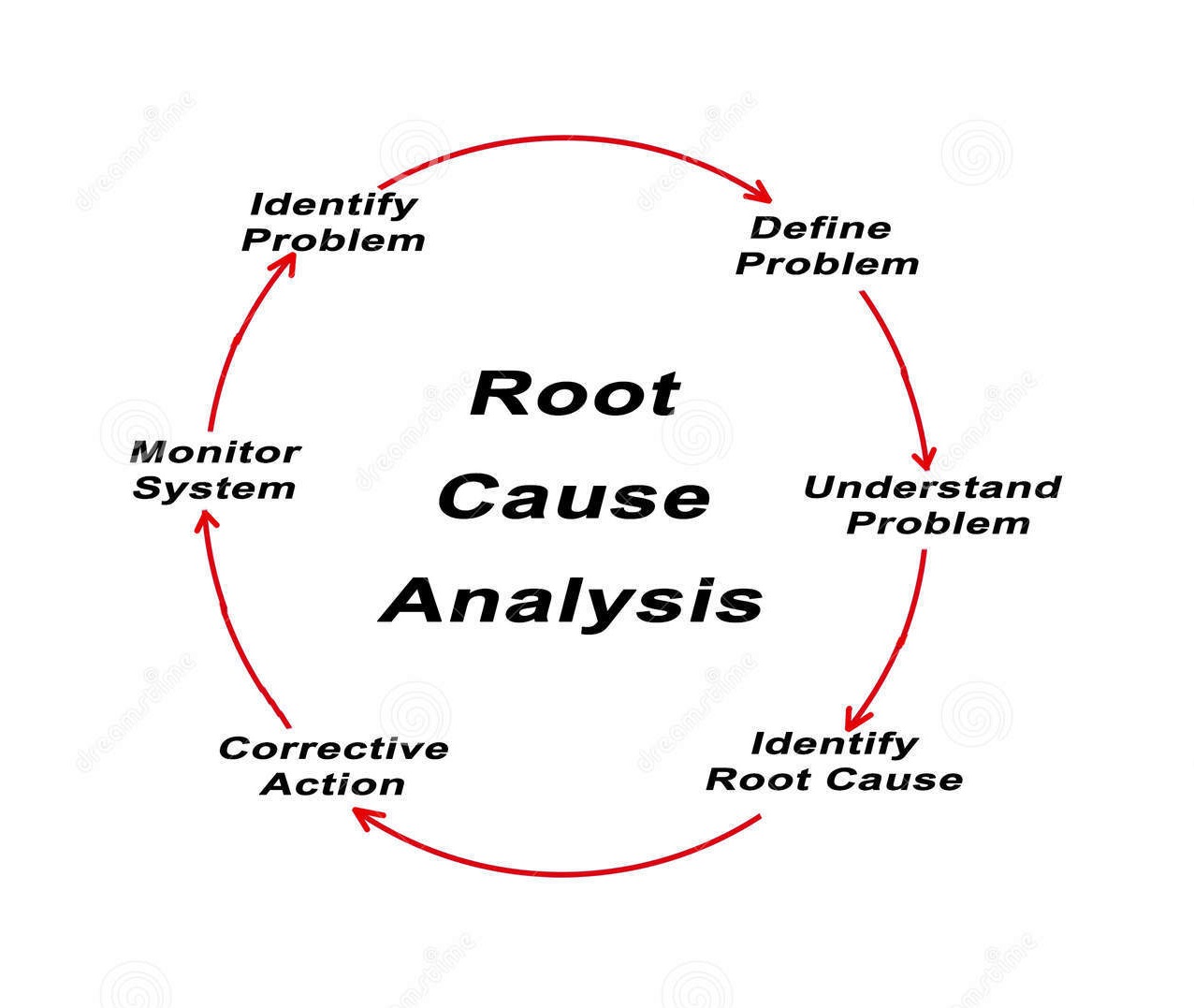PACE: Introduction to Root Cause Analysis
Professional Development Workshop: Introduction to Root Cause Analysis

Root Cause Analysis (RCA) is a popular and often-used technique that helps people answer the question of why the problem occurred in the first place. Root Cause Analysis seeks to identify the origin of a problem. It uses a specific set of steps, with tools such as the 5 Whys and Cause & Effect Diagram, to find the primary cause of the problem, so that you can determine what happened, why it happened and figure out what to do to prevent its recurrence.
Audience
This tutorial has been prepared for beginners to help them understand the basics of Root Cause Analysis. After completing this tutorial, you will find yourself at a moderate level of expertise, from where you can advance further.
Key Target/Objective: This entire seminar is designed to enable folks to be well informed on the higher level technical aspects of RCA Philosophy, so they can step into this world with full confidence, with the right perspective. Part of the PACE activities (Professional Activities Committe for Engineers). So what is PACE?
The Professional Activities Committee for Engineers (PACE) of the IEEE Southeastern Michigan Section, promotes the professional interests of IEEE USA members in this Section. PACE activities may include:
* Workshops on career issues (e.g., networking, career planning, career transitions, interviewing skills)
* Skill training workshops (e.g., entrepreneurship, effective speaking, technical writing, soft skills, critical thinking, leadership skills, etc)
* Government policy as it affects Engineering and Technology.
Date and Time
Location
Hosts
Registration
-
 Add Event to Calendar
Add Event to Calendar
Loading virtual attendance info...
- Starts 14 November 2023 08:48 PM UTC
- Ends 18 January 2024 08:48 PM UTC
- Admission fee ?
Speakers
 Sharan Kalwani of IEEE Education Society
Sharan Kalwani of IEEE Education Society
Professional Development Workshop: Introduction to Root Cause Analysis
Root Cause Analysis (RCA) is a popular and often-used technique that helps people answer the question of why the problem occurred in the first place. Root Cause Analysis seeks to identify the origin of a problem. It uses a specific set of steps, with tools such as the 5 Whys and Cause & Effect Diagram, to find the primary cause of the problem, so that you can determine what happened, why it happened and figure out what to do to prevent its recurrence.
Audience
This tutorial has been prepared for beginners to help them understand the basics of Root Cause Analysis. After completing this tutorial, you will find yourself at a moderate level of expertise, from where you can advance further.
Key Target/Objective: This entire seminar is designed to enable folks to be well informed on the higher level technical aspects of RCA Philosophy, so they can step into this world with full confidence, with the right perspective. Part of the PACE activities (Professional Activities Committe for Engineers). So what is PACE?
The Professional Activities Committee for Engineers (PACE) of the IEEE Southeastern Michigan Section, promotes the professional interests of IEEE USA members in this Section. PACE activities may include:
* Workshops on career issues (e.g., networking, career planning, career transitions, interviewing skills)
* Skill training workshops (e.g., entrepreneurship, effective speaking, technical writing, soft skills, critical thinking, leadership skills, etc)
* Government policy as it affects Engineering and Technology.
Biography:
Sharan Kalwani is an industry technology specialist with 25+ years of experience. Sharan has degrees in both Engineering and Computer Science. He has worked in many diverse areas and is a sought after speaker at many conferences and seminars, such as Supercomputing, HPC Advisory Council, SIAM, Infiniband Trade Association, etc. Sharan is a senior member of IEEE, an Emeritus member of Michigan!UNIX/user group (mug.org), member of Association for Computing Machinery (ACM) and also leads the SIG-Linux section of SEMCO. He enjoys teaching, holds an Adjunct Faculty position at local educational sites. He has published one book "Linux and Internet Security" and is now working on his second text, about a new computer programming language. He is a recipient of the 2018 IEEE MGA Achievement award, 2021 IEEE Region 4 Jack Sherman award and 2022 Robert Neff Section award for his contributions to IEEE activities.
He has been the Chair of the IEEE Southeastern Michigan Section since December 2021 and various officer roles for many of the Southeastern Michigan Geo Units over the years. He also serves as one of the writers/editors of the Sections monthly newsletter - Wavelengths. He has also served as Vice-Chair of IEEE Sustech 2022, IEEE SusTech 2021 Global Conferences.
Email:
Address:Rochester, Michigan, United States
Agenda
05:00 PM - Registration/Sign In, verification of attendee
05:05 PM - Welcome and Introductions, Chapter business update
05:10 PM - Session start
07:00 PM - End of session, Q&A, formal conclusion, feedback session and Wrap Up
A printed copy of the notes will be provided to each confirmed attendee. There is a small fee to cover costs of and the printed material. Registration is confirmed only after fee is pre-paid
A certificate (or CEUs / PDH) are available but by prior request. Please indicate this via email to the sponsors in advance. There is a small fee ($45 for IEEE members and $99 for non-IEEE members) to cover materials, handouts, tutorial notes, printing, postage, etc. (non refundable)

